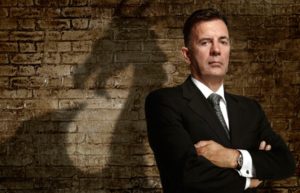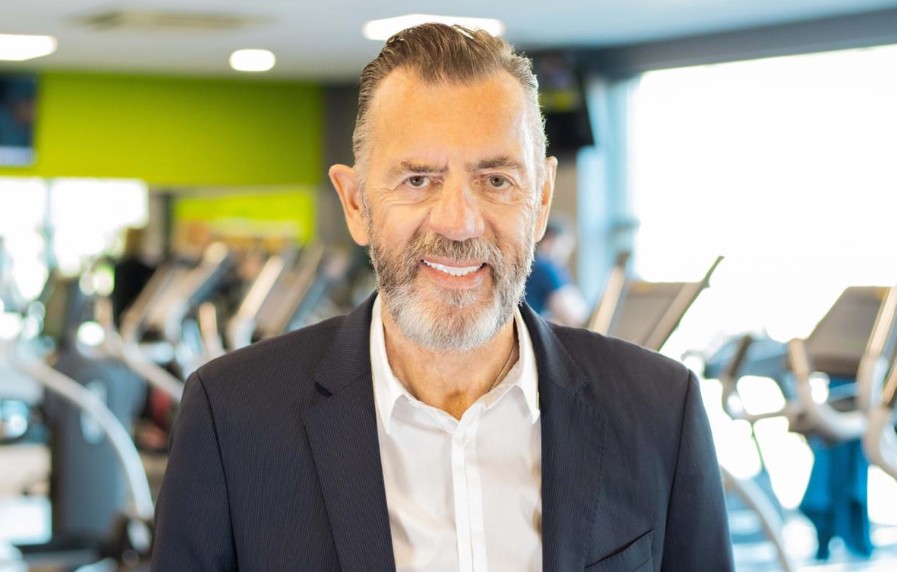Table of Contents
Duncan Bannatyne is a name that resonates with many across the UK, particularly within business and media circles. Known for his presence on BBC’s Dragons’ Den and a variety of ventures in health and leisure, he has built an enviable reputation over the years.
As we step into 2025, there is growing curiosity around his financial stature and the strategies that have supported his ongoing success. This article explores his journey, businesses, investments, and projected financial trajectory.
Who Is Duncan Bannatyne?

Image – Source
Duncan Walker Bannatyne, OBE, born on 2 February 1949, is a Scottish entrepreneur, author, and philanthropist with a diverse business portfolio spanning health clubs, hotels, spas, television, media, and property.
He gained national recognition as a business angel on the BBC’s Dragons’ Den and was appointed an Officer of the Order of the British Empire (OBE) in 2004 for his extensive charitable work.
Bannatyne’s early life was marked by hardship. He grew up in a single room in a Clydebank tenement shared with multiple families.
His father, a World War II veteran, worked in a foundry after surviving as a prisoner of war on the Burma Railway.
Bannatyne showed an early aptitude for arithmetic and enterprise, famously winning a paper round by acquiring 100 new customers.
Leaving school at 15 with no qualifications, he briefly trained as a cabinet-maker before enlisting in the Royal Navy.
His naval career ended after a disciplinary incident led to a dishonourable discharge and a nine-month stint in military detention.
In his twenties, Bannatyne worked various jobs across the UK and Jersey, including hospital porter, deckchair attendant, and agricultural vehicle fitter. He returned to the UK at age 29, penniless and without a bank account, and moved to Stockton-on-Tees.
There, he bought an ice cream van for £450, marking the start of his entrepreneurial journey. He expanded into a fleet and later sold the business, using the proceeds to fund further ventures.
Key facts about Duncan Bannatyne:
- Net worth estimated at £360 million (2025)
- Founder of the Bannatyne Group: 69 health clubs, 45 spas, 3 hotels
- Author of seven business and motivational books
- Philanthropist with significant contributions to causes in the UK and Romania
- OBE recipient for services to charity
Bannatyne’s life is a testament to self-made success built on resilience, opportunity, and strategic growth.
How Has Duncan Bannatyne’s Net Worth Grown Over Time?
Duncan Bannatyne’s net worth has seen consistent growth since the late 1990s, driven by smart reinvestment strategies and a diversified portfolio.
His ability to exit businesses at peak value has played a significant role in wealth accumulation. By 2025, his estimated net worth stands at approximately £500 million.
The table below outlines the progression of key financial achievements in his career:
| Year | Milestone | Estimated Value |
| 1997 | Sale of Quality Care Homes | £26 million |
| 2000 | Sale of Just Learning | £22 million |
| 2006 | Expansion into Spa Hotels | £12 million investment |
| 2025 | Total Estimated Net Worth | £500 million+ |
These figures reflect both liquidity from business sales and the current value of his holdings.
Unlike many entrepreneurs who rely heavily on tech valuations, Bannatyne’s wealth is grounded in asset-rich industries.
His financial approach focuses on:
- Reinvesting profits into stable, high-demand sectors
- Avoiding speculative markets
- Emphasising consumer experience and operational efficiency
How Did Duncan Bannatyne Build His Business Empire?
Bannatyne’s business empire was not built overnight but through calculated risks and strategic vision. After selling his fleet of ice cream vans, he ventured into the healthcare sector.
His first major enterprise, Quality Care Homes, provided care services for the elderly. The success of this business allowed him to sell it for £26 million.
Following this, he launched Just Learning, a chain of children’s nurseries, which he later sold for £22 million. These successful exits provided the capital needed to invest in new opportunities.
The turning point came when he founded the Bannatyne Group. Focused on health and wellness, the group started with fitness clubs and eventually expanded into spas and hotels.
His ability to identify sectors with long-term consumer demand proved to be a key to his continued success.
Key business milestones:
- Founded Quality Care Homes and sold for £26 million
- Launched Just Learning nurseries and sold for £22 million
- Established Bannatyne Health Clubs, now the UK’s largest independent chain
- Expanded into hotels and spa services despite economic downturns
What Businesses Does the Bannatyne Group Own in 2025?

Image – Source
The Bannatyne Group, as of 2025, stands as a leading name in the UK’s health and leisure industry. Its business holdings include fitness clubs, luxury spas, hotels, and wellness centres.
These businesses cater to a broad demographic, focusing on premium services and member experience.
Bannatyne Health Clubs operate more than 70 locations across the UK. Each club offers modern gym equipment, group fitness classes, swimming pools, and relaxation areas. These clubs often feature integrated spa services, providing members with a holistic wellness experience.
Bannatyne Hotels are another important part of the group. They combine luxury accommodation with spa and fitness services, appealing to both leisure and corporate travellers.
Additional ventures include product lines related to fitness and skincare, ensuring that the Bannatyne brand remains diversified and relevant to modern consumers.
What Role Did Dragons’ Den Play in His Success?
Duncan Bannatyne joined BBC’s Dragons’ Den in 2005 as one of the original investors. His no-nonsense attitude, sharp business acumen, and candid feedback made him a memorable personality on the show.
While he was already a millionaire before his TV debut, Dragons’ Den played a significant role in elevating his public profile.
Being on the show offered more than just financial opportunities. It allowed Bannatyne to align with promising start-ups and broaden his investment portfolio.
His television exposure also made him a trusted voice in British business, leading to opportunities in speaking, publishing, and brand partnerships.
Notable benefits from Dragons’ Den:
- Brand recognition for the Bannatyne Group
- Access to innovative small businesses
- Increased demand for his books and public speaking
- Expansion of personal and corporate influence
What Are Duncan Bannatyne’s Most Notable Investments?

Image – Source
Duncan Bannatyne’s investment portfolio reflects his preference for sectors he understands deeply, particularly health, wellness, hospitality, and lifestyle.
Unlike investors who pursue high-risk, high-return tech ventures, Bannatyne takes a methodical approach, concentrating on long-term viability, consumer demand, and operational efficiency.
Health and Fitness Ventures
Bannatyne’s most prominent investment area is health and fitness. As the founder of Bannatyne Health Clubs, he has established more than 70 fitness centres across the UK.
These clubs offer state-of-the-art equipment, fitness classes, spas, and swimming pools, creating a holistic health experience for members.
These facilities are not just passive investments; Bannatyne is actively involved in their development, branding, and customer experience.
His understanding of the growing wellness market has allowed him to maintain relevance and appeal to both younger and older demographics.
Spa and Wellness Services
Integrated into many of his health clubs are Bannatyne Spas, another critical component of his investment strategy. The demand for wellness treatments has increased significantly in the UK, and Bannatyne has capitalised on this trend.
These spas offer massages, facials, skincare therapies, and beauty treatments, appealing to the country’s growing self-care movement.
His ability to blend health and leisure into a single offering provides a unique customer experience that has helped distinguish his brand in a competitive market.
Hotel and Hospitality Industry
Expanding from fitness into hospitality was a natural next step. Bannatyne owns a selection of luxury hotels, including the Bannatyne Spa Hotel in Hastings.
These properties combine wellness and accommodation, often located near or attached to his fitness clubs and spas.
This integrated hospitality model has allowed for cross-selling of services, cost efficiencies, and stronger brand loyalty.
Guests of the hotel benefit from direct access to spa and fitness services, enhancing their stay and encouraging repeat business.
Dragons’ Den Investments
During his tenure on BBC’s Dragons’ Den, Bannatyne invested in a number of small businesses. While not all investments yielded long-term success, several stood out as profitable and strategically aligned with his expertise.
Some of the areas he supported through the show include:
- Children’s products
- Health-related consumer goods
- Eco-friendly personal care items
- Small-scale service businesses with scalable models
These ventures offered value not only through potential returns but also by aligning with his public image and business ethos. He often brought mentorship and industry knowledge to help these start-ups navigate early challenges.
Product Development and Brand Extensions
In addition to investing in services and facilities, Bannatyne has also explored the retail side of the wellness industry.
Branded fitness products, skincare lines, and membership services have emerged from the Bannatyne brand.
While not the core of his income, these brand extensions have enhanced visibility and consumer loyalty.
By creating a recognisable and trusted brand, he has been able to introduce additional revenue streams that complement his primary businesses.
Real Estate Holdings
Although less publicised, Bannatyne also maintains a property portfolio. Many of his health clubs and hotels are owned outright rather than leased, giving him greater control and long-term asset value. His real estate strategy favours locations with high footfall and stable market demand.
Owning the underlying property for his businesses also provides a level of financial insulation, allowing him to withstand economic fluctuations with greater security.
How Does Duncan Bannatyne Give Back to Society?
Philanthropy is an integral part of Duncan Bannatyne’s legacy. He has contributed both time and money to a wide range of causes, particularly those involving health and children. In recognition of his charitable efforts, he was awarded an OBE in 2006.
The Bannatyne Charitable Trust is his main platform for charitable giving. The trust supports projects in the UK and internationally, with a focus on sustainability and long-term impact.
Projects and causes supported by Bannatyne include:
- Casa Bannatyne hospice in Romania for children with HIV/AIDS
- Operation Smile, providing cleft surgeries in developing countries
- UNICEF and Comic Relief
- The Geared for Giving Campaign
- Mary’s Meals and Scottish International Relief
The table below summarises some of his key charitable initiatives:
| Project/Organisation | Focus Area | Bannatyne’s Involvement |
| Casa Bannatyne (Romania) | Health and Child Welfare | Fully funded and supported personally |
| Operation Smile | Surgical Aid | Fundraising and awareness |
| UNICEF | Child Welfare | Regular donations and advocacy |
| Geared for Giving Campaign | Workplace Giving | UK ambassador and spokesperson |
His commitment to giving back highlights the importance he places on social responsibility as a core part of business success.
What Books Has Duncan Bannatyne Written?
Duncan Bannatyne is also an accomplished author with a portfolio of books aimed at aspiring entrepreneurs and business leaders. His works combine autobiographical storytelling with actionable business advice.
His first book, Anyone Can Do It: My Story (2006), detailed his rise from poverty to prominence and quickly became a bestseller. Since then, he has published over 10 titles, covering topics like money management, productivity, and common pitfalls in business.
Notable publications:
- Wake Up and Change Your Life (2008)
- How to Be Smart With Your Money (2010)
- 43 Mistakes Businesses Make… And How to Avoid Them (2011)
- Riding the Storm (2013)
His books are commonly recommended in UK business courses and are popular among entrepreneurs looking for grounded, practical advice from someone who has built wealth from the ground up.
How Is Duncan Bannatyne Viewed as a Public Figure in the UK?

Image – Source
Duncan Bannatyne continues to maintain a strong public presence in the UK business community. He is widely recognised as a credible, approachable, and knowledgeable voice in entrepreneurship.
His contributions extend beyond television and business to education and public policy debates on entrepreneurship and health.
In addition to his Dragons’ Den legacy, he has featured in other documentaries such as Bannatyne Takes On Tobacco and The Rich List.
He also appeared on I’m a Celebrity… Get Me Out of Here in 2015 and The Real Marigold Hotel in 2020, showcasing a more personal and relatable side to his public image.
His reputation is built on:
- Honest and direct communication
- Support for young entrepreneurs
- Strong advocacy for public health
- Commitment to ethical business practices
What Can Aspiring Entrepreneurs Learn from Duncan Bannatyne?
Duncan Bannatyne’s story serves as an inspiring blueprint for aspiring business owners. His career is proof that success is not limited to those with traditional qualifications or resources. His approach emphasises resilience, market knowledge, and a people-first mindset.
Key lessons include:
- Start with what you know and scale slowly
- Be willing to pivot when opportunities arise
- Invest in areas with long-term demand
- Use your platform for positive change
- Maintain transparency in business dealings
By staying grounded and customer-focused, Bannatyne has built an empire that reflects both personal values and market relevance.
Conclusion
Duncan Bannatyne’s journey from modest beginnings to national recognition stands as a testament to entrepreneurial resilience and smart decision-making.
With decades of success in sectors like health, hospitality, and media, he continues to influence business culture in the UK. His consistent commitment to ethical growth and philanthropy further elevates his status.
As 2025 unfolds, Bannatyne remains a powerful figure whose financial trajectory and business insights continue to inspire and inform the next generation of entrepreneurs.
FAQs About Duncan Bannatyne
What inspired Duncan Bannatyne to become an entrepreneur?
Bannatyne’s desire to improve his circumstances and provide for his family drove him to buy his first ice cream van, marking the start of his entrepreneurial journey.
How does Bannatyne’s business strategy differ from others?
He focuses on stable, consumer-driven industries like health, hospitality, and care rather than speculative tech or volatile markets.
What sectors does Duncan Bannatyne invest in today?
His investments span health clubs, spas, hotels, media, and real estate.
Is Duncan Bannatyne still active in business in 2025?
Yes, he continues to run and expand the Bannatyne Group while participating in public speaking and charitable work.
What lessons can be learned from Bannatyne’s investment choices?
He shows the value of sector knowledge, risk management, and ethical entrepreneurship.
Has Duncan Bannatyne faced any business setbacks?
Yes, including early failures and rejections. However, his resilience and adaptability allowed him to recover and grow stronger.
How does Duncan Bannatyne manage his wealth and investments?
Through reinvestment in his core businesses, diversification, and involvement in profitable, high-demand sectors.
Featured Image – Source


